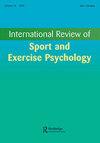严格评价
IF 6.4
2区 心理学
Q1 HOSPITALITY, LEISURE, SPORT & TOURISM
International Review of Sport and Exercise Psychology
Pub Date : 2021-07-12
DOI:10.1080/1750984X.2021.1952471
引用次数: 7
摘要
本文的目的是定义批判性评估,确定其益处,讨论影响批判性评估充分性的概念性问题,并详细说明帮助审稿人进行批判性评估的程序。批判性评估包括对一项研究的可信度或方法的严谨性进行仔细而系统的评估,并有助于评估人们对一系列研究结果的信心。为了帮助审稿人在他们的文章中纳入高质量的批判性评价,他们可以考虑质量和偏倚之间的差异、总质量分数的价值、标准化检查表的优缺点、实验证据层次的相关性、批判性评价工具和报告标准之间的差异,以及评价定性研究所涉及的挑战。健全的批判性评估所涉及的步骤包括:(a)确定个别论文的研究类型,(b)确定适当的标准和清单,(c)选择一套适当的标准和清单,(d)进行评估,以及(e)总结和使用结果。尽管这些步骤适用于定量和定性研究的关键评估,但它们要求审稿人根据评估研究中涉及的主观特征做出一些决定并为之辩护。本文章由计算机程序翻译,如有差异,请以英文原文为准。
Critical appraisal
ABSTRACT The purpose of the current article is to define critical appraisal, identify its benefits, discuss conceptual issues influencing the adequacy of a critical appraisal, and detail procedures to help reviewers undertake critical appraisals. A critical appraisal involves a careful and systematic assessment of a study’s trustworthiness or methodological rigour, and contributes to assessing how confident people can be in the findings of a set of studies. To help reviewers include high quality critical appraisals in their articles, they can consider differences between quality and bias, the value of total quality scores, the advantages and disadvantages of standardized checklists, the relevance of the experimental hierarchy of evidence, the differences between critical appraisal tools and reporting standards, and the challenges involved in appraising qualitative research. The steps involved in a sound critical appraisal include: (a) identifying the study type(s) of the individual paper(s), (b) identifying appropriate criteria and checklist(s), (c) selecting an appropriate set of criteria and checklist, (d) performing the appraisal, and (e) summarizing and using the results. Although these steps apply to critical appraisals of both quantitative and qualitative research, they require reviewers to make and defend a number of decisions resulting from the subjective features involved in assessing research.
求助全文
通过发布文献求助,成功后即可免费获取论文全文。
去求助
来源期刊
CiteScore
17.30
自引率
9.10%
发文量
33
期刊介绍:
International Review of Sport and Exercise Psychology is the first scholarly, peer-reviewed journal that publishes critical reviews of research literature in sport and exercise psychology. Typically, these reviews evaluate relevant conceptual and methodological issues in the field and provide a critique of the strengths and weaknesses of empirical studies that address common themes or hypotheses. The reviews present summaries of, and conclusions about, the current state of knowledge concerning topics of interest, as well as assessments of relevant unresolved issues and future trends. Reviews of research literature on theories, topics and issues that are at the interface with mainstream psychology are especially welcome.

 求助内容:
求助内容: 应助结果提醒方式:
应助结果提醒方式:


